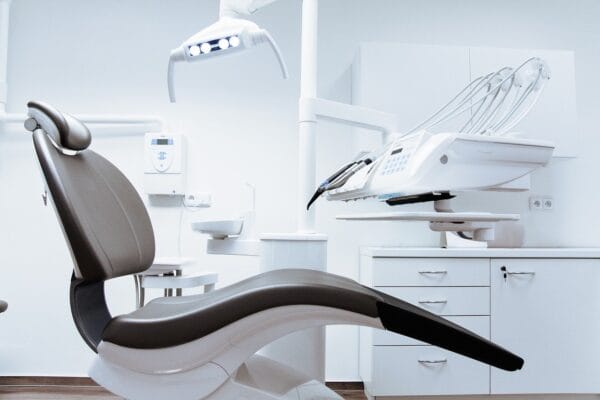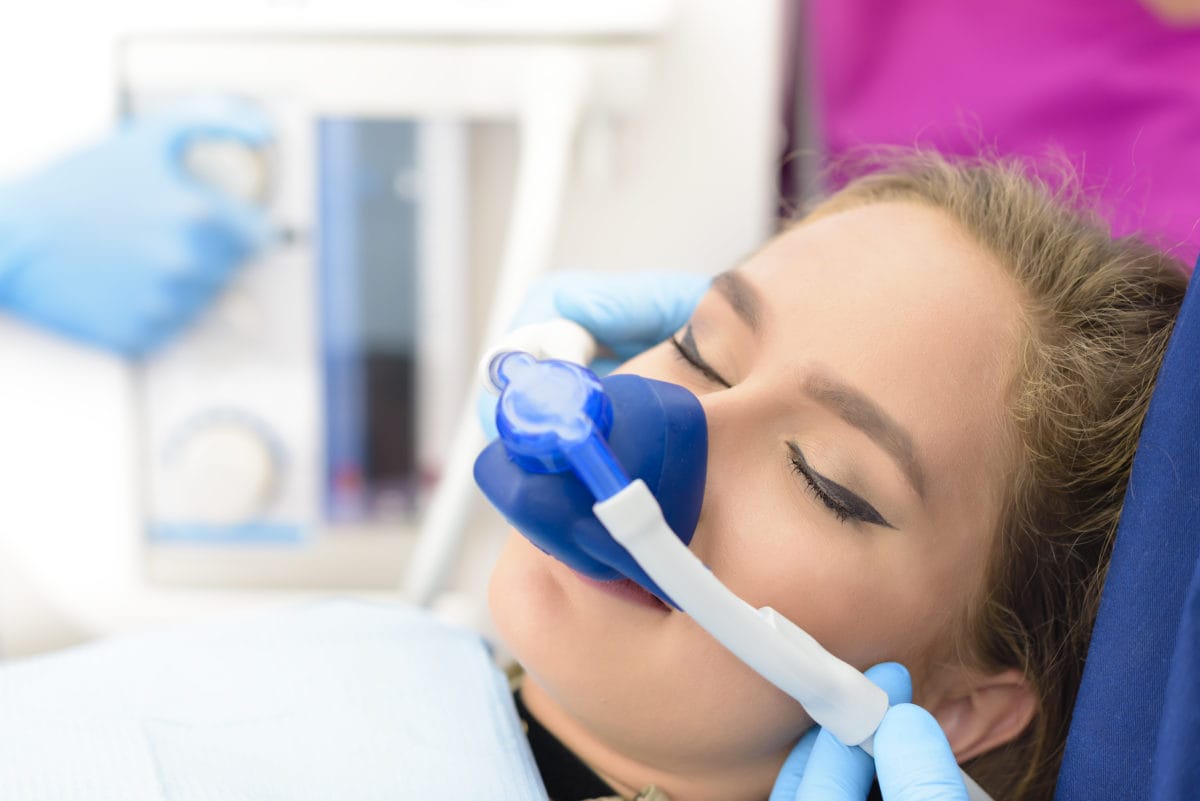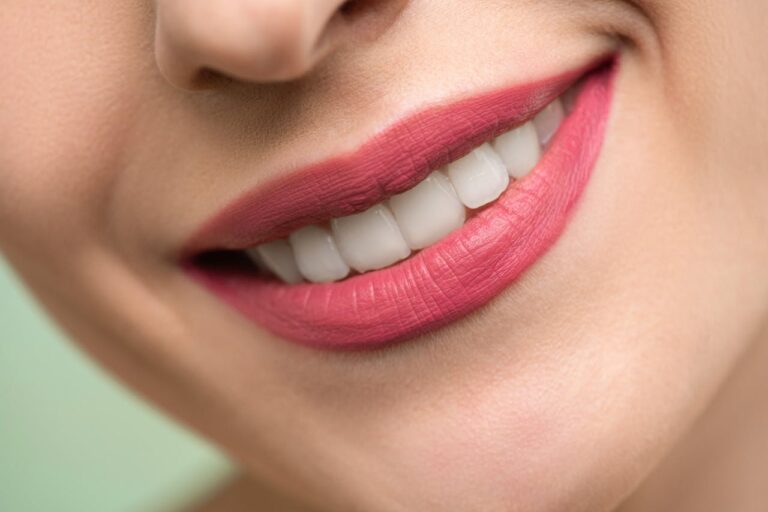What You Need to Know About Sedation Dentistry in Manhattan
If you’re nervous about going to the dentist and want to know if you can be put to sleep during dental work, then you should look into dental sedation. Also known as “sleep dentistry”, the goal of sedation dentistry is to help the patient feel at ease during any dental procedure. And to put your fears to rest, here’s what you need to know about dental sedation.
What Is Sedation Dentistry?
Dental anxiety is real and common. When patients are anxious about going to the dentist, they often choose not to go. And that puts them at risk to develop conditions like early-stage gum disease. For patients who are anxious about dental appointments, they need real relief from anxiety. And that’s where dental sedation can help.

Sedation dentistry is the use of sedatives on dental patients to reduce anxiety around dental appointments so that patients can receive dental care. Depending on the severity of anxiety and complexity of the procedure, a sedation dentist may choose to use nitrous oxide, oral sedation and/or intravenous sedation.
How Does Dental Sedation Work?
Everyone is different, so the type of treatment you receive will differ depending on your circumstances. To start, you’ll need to visit your dentist and discuss the extent of your dental anxiety. For routine procedures like dental cleanings, your dentist may choose to use nitrous oxide (laughing gas). However, if you need to undergo something more complex, like a LANAP procedure, you may need IV and/or oral sedation.
Who Is Eligible for Dental Sedation in NYC?
Any patient can be eligible for dental sedation provided that they don’t have any underlying medical conditions that would exclude them from sedations. Generally speaking though, people with anxiety around dental appointments, patients with low pain thresholds, and those with sensitive gag reflexes commonly request dental sedation.
Types of Sedation Used in Dentistry
- Nitrous Oxide (Laughing Gas): A very common method of conscious sedation. You’ll feel relaxed and maybe a little tingly. There are few side effects and no known allergic reactions to nitrous. Plus, the effects wear off within a few minutes after use.
- Oral Sedation: Typically, the oral medication used for dental sedation is Halcion. It’s similar to Xanax in that it has a calming effect on patients. You take the pill an hour before your procedure and feel relaxed by your appointment. It can also make your memory of the procedure foggy afterward.
- Intravenous Sedation (IV): Your dentist places an IV in your vein to administer sedatives. Because the medication goes directly into your bloodstream, the results are rapid. However, a fear of needles can be an issue for patients and other methods may be used to either sedate or distract patients for the IV placement.

What The Different Levels of Dental Sedation Feel Like
- Minimal (Anxiolysis): You are relaxed, awake, and able to breathe on your own. Some of your thinking and coordination might be impaired.
- Moderate: You can respond to commands and breathe on your own, but may slur when speaking. Your memory of the procedure may be foggy.
- Deep: Nearly unconscious, but can be woken if necessary (though not easily). You may need assistance breathing.
- General Anesthesia: Unconscious, cannot be woken up even with painful stimulation.

What’s the Difference Between Sedation and Anesthesia?
Dental sedation and anesthesia are not the same procedure. Sedation puts you into a peaceful, “sleepy” state of consciousness. Anesthesia, on the other hand, is a complex procedure where you’re “put under” using IV medications and gas to remain fully unconscious for the procedure.
How Sedation Dentistry Works
There are a lot of benefits to dental sedation, but the main one is that it puts your mind at ease. Patients who undergo sedation for their dental appointments can relax during any procedure. Some even say that long procedures zoomed by quickly. And many only have vague memories of their appointments. If you’re nervous about the dentist, then sedation dentistry allows you to get the treatment you deserve without worry.
Why Is Sedation Conscious?
The goal of dental sedation is to calm patients. Unless with instances of severe anxiety or pain sensitivity, there’s no need for patients to be fully sedated. Unconscious sedation has more risks, greater side-effects, and longer recovery times. Conscious sedation, on the other hand, helps make you comfortable during your procedure with lower risks and side effects.
What Are the Side Effects of Dental Sedation?
A common question for dental sedation is, “how long will the effects of sedation last?” Unfortunately, the answer is a bit tricky. As mentioned before, the effects of nitrous oxide wear off quickly. Within a few minutes, you’ll feel normal again. And you can possibly drive home. However, IV sedation and oral sedation stay in your system longer and require more time for the side effects to fade (up to several hours).

The side effects of oral sedation range depending on the type of sedation used. They are: drowsiness, nausea, heavy or sluggish feeling, headache, low blood pressure, slow reflexes, slurred words, lack of coordination, lightheadedness, tingling sensation, slowed breathing, and foggy memory or memory loss (from the procedure).
Is Sedation Dentistry Dangerous?
Any medical procedure has some level of risk. And people are all different. As such, different levels of medication may need to be used. Patients also experience side-effects differently. Some people with sleep apnea or obesity will need to speak with their dentist beforehand. And children under 12 can have extreme reactions to sedation and anesthesia. This is because they are smaller in size and need more care when administering and monitoring sedation.
Ultimately, it is in your best interest to find a well-experienced sedation dentist in Manhattan. Ask them to provide their credentials and feel free to ask them about how experienced they are performing sedation dentistry.
What Is the Cost of Sedation Dentistry in NYC?
The cost of dental sedation varies depending on the procedure and length of time it takes. On average, you can expect to pay between $125 – $200 for mild sedation and over $500 for deep sedation. But it’s best to talk with your dentists to find an accurate cost for your dental sedation.
Does Dental Insurance Cover Sedation?
It depends. Some dental companies label sedation dentistry under “non-essential dental procedures”. Others may provide partial or full coverage. Whether you have Cigna, Aetna, Delta or any other dental insurance provider in Manhattan, you won’t know for sure unless you contact them.
Is There a Full Sedation Dentist Near Me?
You shouldn’t have to suffer through dental anxiety. You deserve a healthy, beautiful smile. So, if you’re nervous about seeing the dentist or curious about dental sedation in Manhattan, then you should check out Advanced Dental Arts.
We’re a top-rated, New York City-based dental practice located near you. Our dynamic team of board-certified dental specialists who are ready to help put your fears of your future dental appointments at ease. We’re here to talk you through your next procedure and discuss sedation dentistry with you.
And if you’re looking for a dental practice near NYU that takes Cigna, Aetna, Delta or many other dental insurance providers, then you need to book your next dental appointment today!




